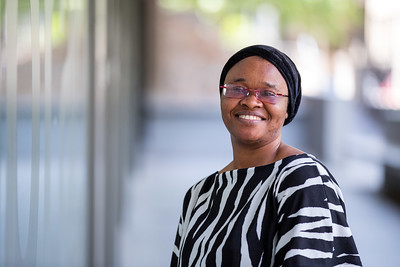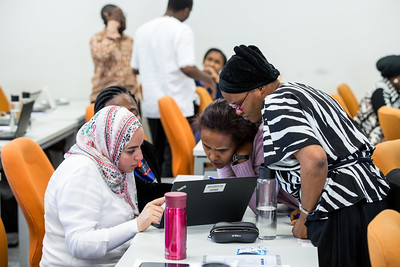Blog
Being the change you want to see
 While growing up, I was troubled by the scale of the socioeconomic gap between the haves and the have-nots in the community around me. I saw cases where some individuals and households could afford education, quality healthcare, nice houses, nutritious food and good clothing, while others lived in wretched conditions and could barely make ends meet. I began to ruminate on the causes of these socioeconomic inequalities and what could be done to reduce the inequalities that characterises my community, and so many African societies. I decided that the best way to find out, and to contribute in a significant way to addressing the issue, was to become a development economist. Now I am a post-doctoral fellow with the South African Research Chair Initiative (SARChI) in Social Policy at the University of South Africa in Pretoria.
While growing up, I was troubled by the scale of the socioeconomic gap between the haves and the have-nots in the community around me. I saw cases where some individuals and households could afford education, quality healthcare, nice houses, nutritious food and good clothing, while others lived in wretched conditions and could barely make ends meet. I began to ruminate on the causes of these socioeconomic inequalities and what could be done to reduce the inequalities that characterises my community, and so many African societies. I decided that the best way to find out, and to contribute in a significant way to addressing the issue, was to become a development economist. Now I am a post-doctoral fellow with the South African Research Chair Initiative (SARChI) in Social Policy at the University of South Africa in Pretoria.
Through being involved in research and policy analysis I hope to shift the work of development economics towards practical applications. Through researchers like me engaging with African policy makers, and the global community, we can combine our powers to find research-based, people-focused, policy solutions to the problems of climate change, food insecurity, poverty, unemployment, and inequality.
But many young researchers from Africa, and around the Global South, are ill-equipped to take on such a role. Firstly because when you study labour market economics in Africa you are taught about models and use datasets that are based on Western societies. But their labour markets do not resemble what we see when we walk out of the classroom. Secondly, we’re learning in institutes that often don’t have access to the latest technology, with faculty who rarely have the opportunities to learn about new data analysis tools or methods. The result: researchers who lack confidence and conviction that their research is  good enough to be published or useful to policy makers, and whose skills do not always help them answer the questions present in their own local context.
good enough to be published or useful to policy makers, and whose skills do not always help them answer the questions present in their own local context.
Bringing African researchers to the table
We need to ensure that African researchers have the tools and knowledge to do high-quality, policy-relevant research, and have the confidence to engage with policy makers. I was so glad to see the UNU-WIDER Summer School, because it is exactly programmes like this that can help to achieve that. It’s why I wanted to join, and I feel I got out of it more than I could have hoped.
Besides feeling a bit starstruck in his presence, I found the summer school lectures with the well-known Gary Fields extremely helpful for gaining insight into the theory of labour market economics, which he really bought to life with stories from his fieldwork in the Global South. Moreover, the afternoons spent in the computer lab were great for being able to apply what we were learning while also having experts there to help us work with our own country data and interpret the results. Each of the lecturers made sure that what we were learning was relevant to our own country context, and our research questions.
New and improved
At the end of a tiring two weeks I came away feeling exhausted, excited, energised and eager to put into practice what I learned. I feel so much more confident about the approach I take to my research and I know that what I gained over those two weeks will help me produce higher-quality research than previously. I came away feeling confident that I have the ability to do high-quality and high-impact research that would be relevant to policy makers and help to create change.
I hope that in the future evidence-based research from local researchers will be key to creating informed policy that can help achieve the SDGs and many other development goals in Africa, and beyond. And with what I’ve learned, I am sure I can be part of that process.
Kehinde Oluwaseun is a post-doctoral fellow with the South African Research Chair Initiative (SARChI) in Social Policy at the University of South Africa in Pretoria.
The views expressed in this piece are those of the author(s), and do not necessarily reflect the views of the Institute or the United Nations University, nor the programme/project donors.
 Join the network
Join the network

